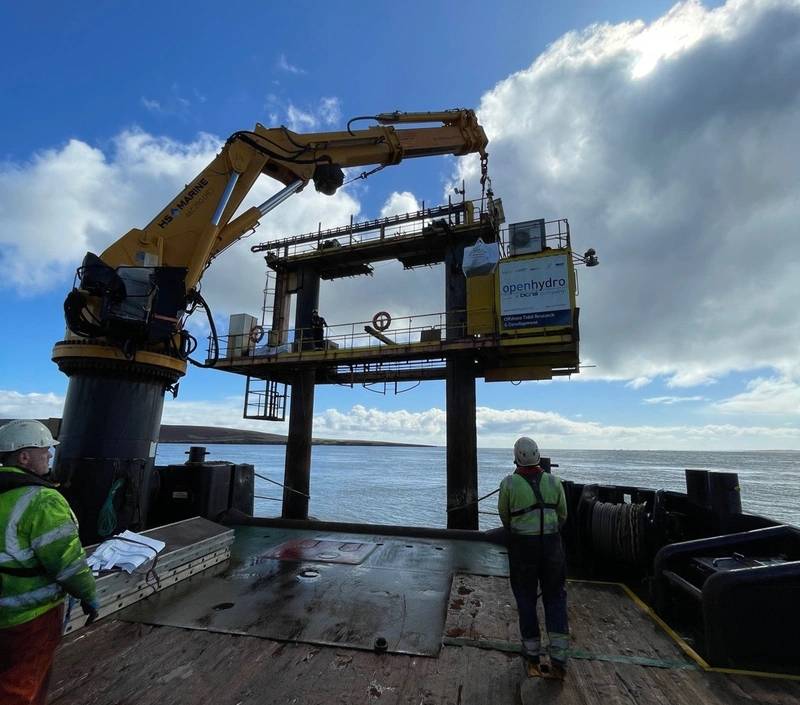
Ocean Kinetics and Green Marine (UK), two Scottish firms, have joined forces in a joint venture partnership to decommission OpenHydro’s tidal energy platform in the Orkney Islands. This project involves the removal of the steel superstructure that was installed in 2006 at the European Marine Energy Centre’s (EMEC) Fall of Warness test site.
The decommissioning contract was awarded by EMEC in early April, with Ocean Kinetics providing divers, riggers, welders, and ROV services, while Green Marine is contributing offshore management, the Green Isle vessel, moorings, and operational cable experience. The scope of work includes the removal of the steel superstructure, Diamond Wire Cutting of the piles, and cable disconnection and termination.
Both firms have extensive experience in managing various marine works, including the decommissioning of the Buchan Alpha platform and handling subsea servers, port gates, aquaculture equipment, and sunken barges. The OpenHydro superstructure has been dismantled into smaller components for removal from its static base, with the Green Isle vessel conducting a series of lifts.
According to Green Marine Operations Manager Terry Norquay, the topside infrastructure has been successfully removed, and the project is now progressing towards pile removal and cable termination. The final steps of the decommissioning process will involve cutting each pile foundation flush to the seabed using diamond wire cutting machines.
OpenHydro was a pioneer in utilizing the tidal test site at the Fall of Warness, with its 250kW tidal turbine being the first to be grid-connected in Scotland and generate electricity to the national grid in the UK. However, in 2018, Naval Energies, the parent company of OpenHydro, decided to cease further investments in tidal energy development, leading to OpenHydro’s liquidation.
As the joint venture between Ocean Kinetics and Green Marine progresses with the decommissioning project, efforts are being made to return the seabed to its original condition in compliance with the Marine Licence regulations. The collaboration between the two firms highlights their expertise in handling complex marine operations and their commitment to environmental sustainability.


